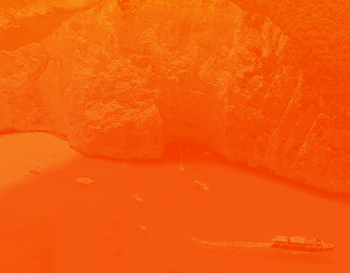As the info on the website that Graham has provided the link to suggests, if you are offered cigars on the street then they will almost certainly be fakes but not always. Workers in the factories are partly paid in kind in that they get a free cigar 'ration' as part of their wages. Great if you are smoker - 'dead' money if you aren't and so some non-smoking cigar factory workers will try selling the real thing on the black market. It can be the way to secure a real bargain as long as you are prepared for the fact that they might get confiscated as you leave Cuba as they aren't supposed to be selling their ration.
If interested in doing this then bear the following in mind:
- Is there a Partagas, Cohiba etc factory in the town where you are staying? If there isn't, then if you are offered some then it's unlikely they are genuine. But if there is then there is a chance that you are being offered the genuine article. They should still have the same official seals on them etc but won't necessarily be offered for sale in sealed boxes - if they are, be wary because the genuine article in these circumstances are more likely to be wrapped in cellophane bundles of 10 or 25 but they should still have the factory seal on them.
- If you are going to buy outside of the official shops then the chance of being openly offered the real thing on the street or the beach by a stranger are very slim. Workers in the factories receive their allowance as a personal perk (and to cut down on the chance of them stealing cigars for their own consumption) and selling them on is not encouraged. So if someone is openly selling them on the streets then that is a warning sign in itself because they are doing so safe in the knowledge that if challenged by the police, then they can easily prove that they are selling low grade and/or fake cigars and not the real deal on the black market. Someone selling part of their or a relative's allowance needs to count on your discretion as much as you need to count on their honesty. While not a guarantee, a genuine seller is likely to have taken time to suss you out beforehand as much as you will be trying to suss them.
- Not all 'fakes' are of poor quality or bad value for money. Tobacco farmers are allowed to make cigars themselves from their surplus tobacco production that is not bought by the national marketing board for the factories. Think of these as 'homemades' rather than fakes and you might be surprised at the quality for the price. This can be especially true in the Vinales/Pina del Rio region where there are a lot of small scale tobacco farmers who are legitimately allowed to make and sell cigars from their own tobacco crop. It can be worth taking a punt on a few just out of curiosity and most will sell you a sample one to try and if you like it, you can buy more. In these circumstances, they might tell you that they are as good as Cohibas but there will be no attempt to try and persuade you that they are one of the well known branded makes.
- I've brought back cigars on every trip to Cuba, some I've bought (but never from the official shops) and some I've been given as gifts but never more than my UK duty free allowance. I've always packed them in my checked-in baggage and never had a problem - either with them being stolen from the cases or with the Cuban authorities. I've never been asked to produce a receipt either but was always ready to bluff that they'd been given to me as gifts for my father if challenged - easier for me to do because I usually stay with families rather than in hotels and travel in circumstances where it would be usual to exchange gifts. But as I say, it's never been put to the test.
SM


 but U suspect that they might have suspected him of worse things than that! I cannot recall ever seeing a Cuban in Cuba, male or female with tattoos - if they have them they don't make a point of displaying them. I know some Cuban ex-pats in the UK who do have them but they were done here after they arrived. I was once told that older Cubans associated tattoos with the pre-Revolutionary Mafia presence on the island but I've no idea how true this might be.
but U suspect that they might have suspected him of worse things than that! I cannot recall ever seeing a Cuban in Cuba, male or female with tattoos - if they have them they don't make a point of displaying them. I know some Cuban ex-pats in the UK who do have them but they were done here after they arrived. I was once told that older Cubans associated tattoos with the pre-Revolutionary Mafia presence on the island but I've no idea how true this might be.

